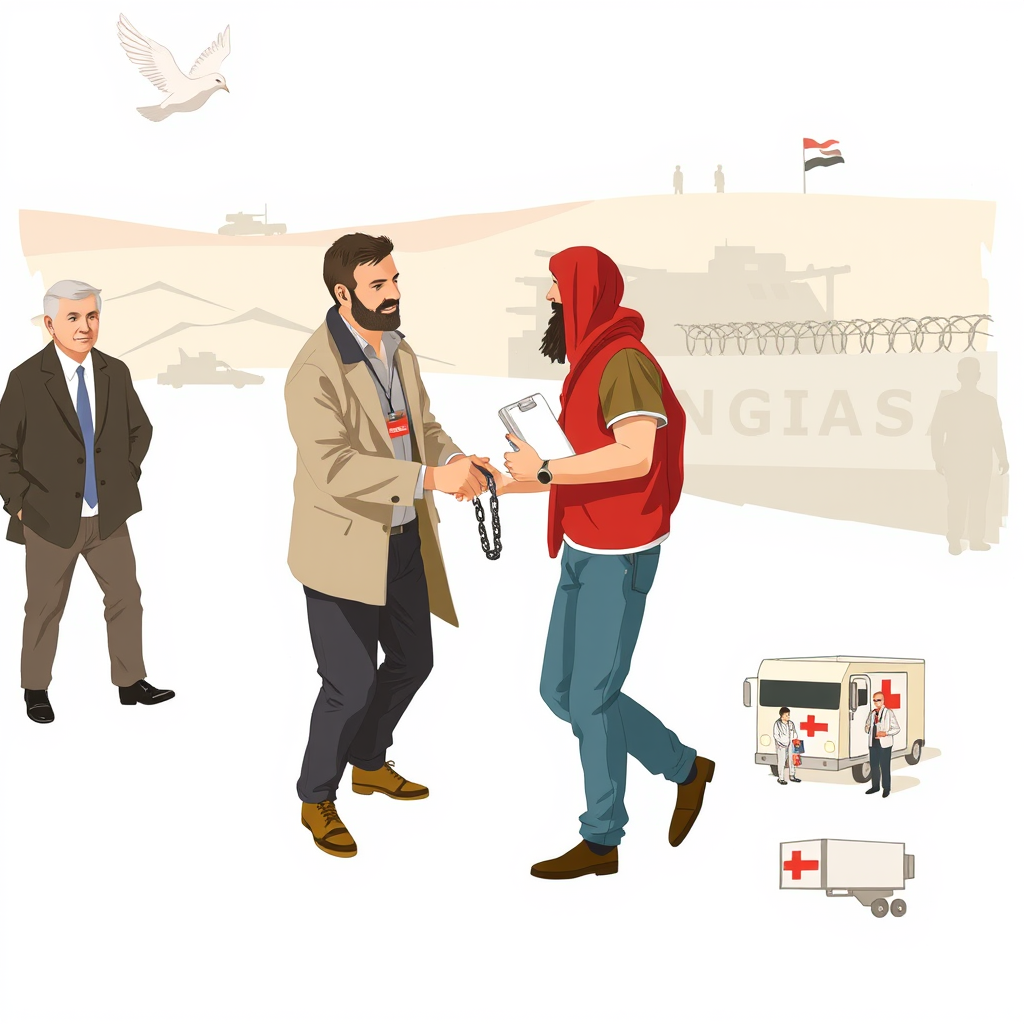Hostage Freed in Gaza Ahead of Trump’s Visit

Hamas has freed Edan Alexander, the last known American hostage held in Gaza, in a move that appears to be a conciliatory gesture toward Donald Trump ahead of his upcoming visit to the Middle East. Alexander, who was seized during the October 7 terrorist attacks, was handed over to the Red Cross in Khan Younis on Monday. This handover is part of broader efforts to revive ceasefire negotiations in the region.
The release of Alexander is seen as a significant development, particularly as Trump’s visit is expected to heavily focus on the Israel-Hamas conflict. Trump expressed hope that more hostages would be released, estimating that around 20 of the remaining 58 hostages held by Hamas might still be alive.
Hamas, in a statement, framed the release as part of ongoing mediation efforts to achieve a ceasefire, reopen crossings, and facilitate the delivery of aid and relief to the people of Gaza. The mother of the 21-year-old hostage, Yael, appealed to Israeli Prime Minister Benjamin Netanyahu to expedite a deal to secure the return of all remaining hostages, emphasizing that the situation is far from resolved.
Israeli Kan Radio reported that the Israel Defense Forces (IDF) had scaled back operations in the Gaza Strip to ensure Alexander’s safe transfer. This marks the first hostage handover from Gaza since the end of the first phase of the latest ceasefire in March, which was subsequently broken by Israel with heavy airstrikes.
The ongoing military operations in Gaza are compounded by a near-total blockade imposed by Israel, which has prevented humanitarian aid from reaching Palestinians for nearly eight weeks. International organizations have been vocal in their calls for an end to the blockade, as Gaza’s population of 2.1 million faces severe food insecurity, with one in five people on the brink of starvation.
Dr. Saeed Salah, medical director of the Patients Friends Benevolent Society Hospital in Gaza, has highlighted the dire conditions in Gaza’s healthcare system, citing shortages of fuel, oxygen, and medical equipment. He urged an immediate end to the war and the unhampered entry of humanitarian and medical aid to prevent further loss of life.
On May 5, Israel announced plans to intensify its military operations in Gaza, aiming for indefinite occupation. This move includes a new aid distribution process through approved bodies in designated areas, a plan criticized by international organizations. The UN Humanitarian Country Team in the Occupied Palestinian Territory described the plan as a dangerous tactic that reinforces control over life-sustaining items, potentially driving civilians into militarized zones.
The situation in Gaza is a stark reminder of the humanitarian crisis unfolding in the region. The release of Alexander is a small step forward, but the broader conflict and the suffering of the Palestinian people demand urgent and sustained attention from the international community. The blockade and military operations are not only exacerbating the crisis but also creating long-term challenges that will be difficult to overcome. It is crucial for all parties involved to prioritize peace and humanitarian aid to alleviate the immediate suffering and work towards a lasting solution.